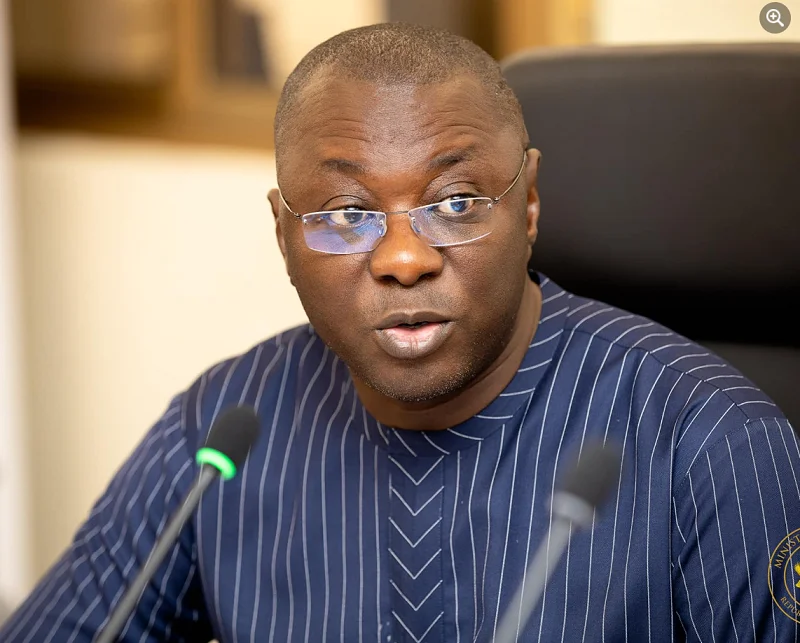The proposed GoldBod initiative in Ghana, designed to formalize and regulate gold trading within the small-scale mining sector, has sparked considerable debate, particularly concerning its structural framework and potential for conflicts of interest. Former Finance Minister Dr. Mohamed Amin Adam has voiced strong concerns, arguing that the initiative’s current model, which combines commercial and regulatory functions within the same entity, deviates from established global best practices. He emphasizes the importance of separating these roles to maintain effective oversight and prevent potential abuses of power. This centralized approach, where GoldBod would act as both the sole buyer and assayer of gold, raises red flags about transparency and accountability, potentially hindering the very objectives the initiative aims to achieve.
Dr. Amin Adam’s concerns reflect broader anxieties surrounding the governance of the GoldBod initiative. The proposed structure, where a single entity controls both the commercial and regulatory aspects of gold trading, creates a clear conflict of interest. This concentration of power could lead to a lack of impartiality in regulatory decisions, potentially favoring commercial interests over the broader goals of formalizing the sector and curbing illicit activities. An independent regulatory body, detached from commercial operations, is crucial for ensuring fair practices, promoting transparency, and maintaining public trust in the system. Without such separation, the initiative risks becoming susceptible to manipulation and undermining its own stated objectives of improving traceability and bolstering Ghana’s international gold reputation.
The government’s rationale for centralizing these functions within GoldBod centers on the belief that it will effectively curb gold smuggling, a persistent challenge within the small-scale mining sector. By consolidating buying and assaying processes, the government aims to create a more controlled environment, making it difficult for illicitly mined gold to enter the formal market. This centralized control is also intended to strengthen foreign exchange reserves by ensuring that all gold transactions flow through official channels, contributing to the stability of the Ghanaian cedi. However, these anticipated benefits are overshadowed by the substantial risks associated with the proposed structure. The potential for conflicts of interest, coupled with the lack of independent oversight, could create an environment conducive to corruption and ultimately undermine the initiative’s effectiveness.
Critics of the GoldBod framework argue that the potential gains in curbing smuggling and bolstering reserves are outweighed by the risks of concentrating power in a single entity. They propose an alternative model that establishes a clear separation between commercial operations and regulatory oversight. Under this model, GoldBod could retain its role as a significant player in the gold market, but its regulatory functions would be transferred to an independent body. This separation would create a system of checks and balances, ensuring that commercial interests do not influence regulatory decisions. It would also enhance transparency and accountability, fostering greater trust among stakeholders, including small-scale miners, international buyers, and the Ghanaian public.
An independent regulatory body would be responsible for setting and enforcing standards for gold trading, licensing and monitoring aggregators, and ensuring compliance with environmental and social responsibility guidelines. This independent oversight would create a level playing field for all market participants, preventing unfair competition and promoting responsible mining practices. Furthermore, a transparent regulatory framework would enhance Ghana’s reputation as a reliable source of ethically sourced gold, attracting international investment and strengthening the country’s position in the global gold market. This separation of powers is not just about mitigating risks; it is about creating an environment that fosters trust, promotes ethical practices, and ultimately contributes to the sustainable development of the small-scale mining sector.
The debate over the GoldBod initiative highlights a fundamental tension between the desire for centralized control and the need for independent oversight. While the government’s objective of formalizing the gold trade and curbing illicit activities is laudable, the chosen approach carries significant risks. The potential for conflicts of interest inherent in the proposed structure undermines the very goals the initiative seeks to achieve. By adopting a model that separates commercial operations from regulatory oversight, Ghana can create a more transparent, accountable, and ultimately more effective system for managing its gold resources, benefiting both the small-scale mining sector and the nation’s economy as a whole. A truly successful GoldBod initiative requires a robust and independent regulatory framework that safeguards against corruption, promotes fair competition, and ensures the sustainable development of the gold mining sector.














